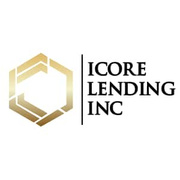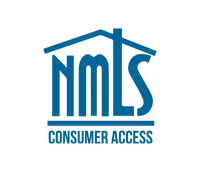
Seize your
Dream of Home
Ownership
LOAN PROGRAMS


Which Mortgage Program is Right for You?
There are a number of different types of home loans available to you, and it can pay to familiarize yourself with them. Luckily we’re here to help you choose the best type of home loan for your needs.
Mortgage Rate Options
The most common type of loan option, the traditional fixed-rate mortgage includes monthly principal and interest payments which never change during the loan's lifetime
Adjustable-rate mortgages include interest payments which shift during the loan's term, depending on current market conditions. Typically, these loans carry a fixed-interest periods.
The most common type of loan option, the traditional fixed-rate mortgage includes monthly principal and interest payments which never change during the loan's lifetime
Fixed Rate Mortgages
The traditional fixed rate mortgage is the most common type of loan program, where monthly principal and interest payments never change during the life of the loan. Fixed rate mortgages are available in terms ranging from 10 to 30 years and in most cases can be paid off at any time without penalty. This type of mortgage is structured, or "amortized" so that it will be completely paid off by the end of the loan term.
Even though you have a fixed rate mortgage, your monthly payment may vary if you have an "impound account". In addition to the monthly "principal + interest" and any mortgage insurance premium (amount charged to homebuyers who put less than 20% cash down when purchasing their home), some lenders collect additional money each month for the prorated monthly cost of property taxes and homeowners insurance. The extra money is put in an impound account by the lender who uses it to pay the borrowers' property taxes and homeowners insurance premium when they are due. If either the property tax or the insurance happens to change, the borrower's monthly payment will be adjusted accordingly. However, the overall payments in a fixed rate mortgage are very stable and predictable.

Adjustable Rate Mortgages
Adjustable Rate Mortgages (ARM)s are loans whose interest rate can vary during the loan's term. These loans usually have a fixed interest rate for an initial period of time and then can adjust based on current market conditions. The initial rate on an ARM is lower than on a fixed rate mortgage which allows you to afford and hence purchase a more expensive home. Adjustable rate mortgages are usually amortized over a period of 30 years with the initial rate being fixed for anywhere from 1 month to 10 years. All ARM loans have a "margin" plus an "index." Margins on loans typically range from 1.75% to 3.5% depending on the index and the amount financed in relation to the property value. The index is the financial instrument that the ARM loan is tied to such as: 1-Year Treasury Security, LIBOR (London Interbank Offered Rate), Prime, 6-Month Certificate of Deposit (CD) and the 11th District Cost of Funds (COFI).
When the time comes for the ARM to adjust, the margin will be added to the index and typically rounded to the nearest 1/8 of one percent to arrive at the new interest rate. That rate will then be fixed for the next adjustment period. This adjustment can occur every year, but there are factors limiting how much the rates can adjust. These factors are called "caps". Suppose you had a "3/1 ARM" with an initial cap of 2%, a lifetime cap of 6%, and initial interest rate of 6.25%. The highest rate you could have in the fourth year would be 8.25%, and the highest rate you could have during the life of the loan would be 12.25%.

Interest Only Mortgages
A mortgage is called “Interest Only” when its monthly payment does not include the repayment of principal for a certain period of time. Interest Only loans are offered on fixed rate or adjustable rate mortgages as wells as on option ARMs. At the end of the interest only period, the loan becomes fully amortized, thus resulting in greatly increased monthly payments. The new payment will be larger than it would have been if it had been fully amortizing from the beginning. The longer the interest only period, the larger the new payment will be when the interest only period ends.
You won't build equity during the interest-only term, but it could help you close on the home you want instead of settling for the home you can afford.
Since you'll be qualified based on the interest-only payment and will likely refinance before the interest-only term expires anyway, it could be a way to effectively lease your dream home now and invest the principal portion of your payment elsewhere while realizing the tax advantages and appreciation that accompany homeownership.
As an example, if you borrow $250,000 at 6 percent, using a 30-year fixed-rate mortgage, your monthly payment would be $1,499. On the other hand, if you borrowed $250,000 at 6 percent, using a 30-year mortgage with a 5-year interest only payment plan, your monthly payment initially would be $1,250. This saves you $249 per month or $2,987 a year. However, when you reach year six, your monthly payments will jump to $1,611, or $361 more per month. Hopefully, your income will have jumped accordingly to support the higher payments or you have refinanced your loan by that time.

Mortgages with interest only payment options may save you money in the short-run, but they actually cost more over the 30-year term of the loan. However, most borrowers repay their mortgages well before the end of the full 30-year loan term.
Borrowers with sporadic incomes can benefit from interest-only mortgages. This is particularly the case if the mortgage is one that permits the borrower to pay more than interest-only. In this case, the borrower can pay interest-only during lean times and use bonuses or income spurts to pay down the principal.
Loan Program Options
Conventional Loans
A conventional loan is a type of loan that is not insured by the government. Conventional loans offer more flexibility and fewer restrictions for borrowers, especially those borrowers with good credit and steady income.
FHA Home Loans
FHA home loans are mortgages which are insured by the Federal Housing Administration (FHA), allowing borrowers to get low mortgage rates with a minimal down payment.
Va Home Loans
VA loans are mortgages guaranteed by the Department of Veteran Affairs. These loans offer military veterans exceptional benefits, including low interest rates and no Mortgage Insurance
Jumbo Home Loans
A jumbo loan is a mortgage used to finance properties that are too expensive for a conventional conforming loan. The maximum amount for a conforming loan is $766,550 in most counties
Conventional Loans
A conventional loan is a type of loan that doesn't have government backing or insurance, unlike FHA, VA, and USDA loans, which are insured by the government. Conventional mortgage loans, whether conforming or non-conforming, usually require a slightly larger down payment than some government loans. However, conventional loans offer more flexibility and fewer restrictions for borrowers, especially those borrowers with good credit and steady income.
Advantages of Conventional Loans
Conventional loans offer several advantages. First, they often have more flexible terms and lower interest rates than government-backed loans. Additionally, conventional loans also allow for higher loan amounts, making them suitable for financing higher-priced homes.
Down Payment Requirements
It is possible to obtain a conventional mortgage loan with a down payment as low as 3%. While conventional loans traditionally require a larger down payment, some borrowers may qualify to purchase a home with a 3%-5% down payment. Keep in mind that a lower down payment may result in additional costs, such as private mortgage insurance (PMI).
Eligibility Requirements
To qualify for a conventional loan, you generally need a good credit score (usually above 620), a stable employment history, and a manageable debt-to-income ratio. Other factors, such as your income, assets, and the property's appraisal value, will also be considered. Specific requirements may vary, so it's essential to consult with a mortgage professional to determine your eligibility.
Conventional vs Government-backed loans
Conventional loans can be an excellent choice for many homebuyers. They often offer competitive interest rates, term flexibility, and the ability to finance various property types. However, whether a conventional loan is the best option depends on your financial situation, credit history, and preferences. It's always a good idea to explore multiple loan options and consult a mortgage professional to determine the best fit for your needs.
FHA Loans
FHA home loans are mortgage loans that are insured against default by the Federal Housing Administration (FHA). FHA loans are available for single family and multifamily homes. These home loans allow banks to continuously issue loans without much risk or capital requirements. The FHA doesn't issue loans or set interest rates, it just guarantees against default.
FHA loans allow individuals who may not qualify for a conventional mortgage obtain a loan, especially first time home buyers. These loans offer low minimum down payments, reasonable credit expectations, and flexible income requirements.
What is an FHA Loan?
In 1934, the Federal Housing Administration (FHA) was established to improve housing standards and to provide an adequate home financing system with mortgage insurance. Now families that may have otherwise been excluded from the housing market could finally buy their dream home.
FHA does not make home loans, it insures a loan; should a homebuyer default, the lender is paid from the insurance fund.
- Buy a house with as little as 3.5% down.
- Ideal for the first-time homebuyers unable to make larger down payments.
- The right mortgage solution for those who may not qualify for a conventional loan.
- Down payment assistance programs can be added to a FHA Loan for additional down payment and/or closing cost savings.
Documents needed for FHA Prequalification
Your loan approval depends 100% on the documentation that you provide at the time of application. You will need to give accurate information on:
Employment
- Complete Income Tax Returns for past 2-years
- W-2 & 1099 Statements for past 2-years
- Pay-Check Stubs for past 2-months
- Self-Employed Income Tax Returns and YTD Profit & Loss Statements for past 3-years for self-employed borrowers
Savings
- Complete bank statements for all accounts for past 3-months
- Recent account statements for retirement, 401k, Mutual Funds, Money Market, Stocks, etc.
Credit
- Recent bills & statements indicating account numbers and minimum payments
- Landlord's name, address, telephone number, or 12- months cancelled rent checks
- Recent utility bills to supplement thin credit
- Bankruptcy & Discharge Papers if applicable
- 12-months cancelled checks written by someone you co-signed for to get a mortgage, car, or credit card, this indicates that you are not the one making the payments.
Personal
- Drivers License
- Social Security Card
- Any Divorce, Palimony or Alimony or Child Support papers
- Green Card or Work Permit if applicable
- Any homeownership papers
Refinancing or Own Rental Property
- Note & Deed from any Current Loan
- Property Tax Bill
- Hazard Homeowners Insurance Policy
- A Payment Coupon for Current Mortgage
- Rental Agreements for a Multi-Unit Property
FHA Loans Vs Conventional Loans
The main difference between a FHA Loan and a Conventional Home Loan is that a FHA loan requires a lower down payment, and the credit qualifying criteria for a borrower is not as strict. This allows those without a credit history, or with minor credit problems to buy a home. FHA requires a reasonable explanation of any derogatory items, but will use common sense credit underwriting. Some borrowers, with extenuating circumstances surrounding bankruptcy discharged 3-years ago, can work around past credit problems. However, conventional financing relies heavily upon credit scoring, a rating given by a credit bureau such as Experian, Trans-Union or Equifax. If your score is below the minimum standard, you may not qualify.
VA Loans
The VA Loan provides veterans with a federally guaranteed home loan which requires no down payment. This program was designed to provide housing and assistance for veterans and their families.
The Veterans Administration provides insurance to lenders in the case that you default on a loan. Because the mortgage is guaranteed, lenders will offer a lower interest rate and terms than a conventional home loan. VA home loans are available in all 50 states. A VA loan may also have reduced closing costs and no prepayment penalties.
Additionally there are services that may be offered to veterans in danger of defaulting on their loans. VA home loans are available to military personal that have either served 181 days during peacetime, 90 days during war, or a spouse of serviceman either killed or missing in action.
What is a VA Loan?
The Veteran Administration's Loan originated in 1944 through the Servicemen's Readjustment Act; also know as the GI Bill. It was signed into law by President Franklin D. Roosevelt and was designed to provide Veterans with a federally-guaranteed home loan with no down payment. VA loans are made by private lenders like banks, savings & loans, and mortgage companies to eligible Veterans for homes to live in. The lender is protected against loss if the loan defaults. Depending on the program option, the loan may or may not default.
Who is Eligible for a VA Loan?
Wartime/Conflict Veterans
- Veterans who were NOT Dishonorably Discharged, and served at least 90 days
- World War II – September 16, 1940 to July 25, 1947
- Korean Conflict – June 27, 1950 to January 31, 1955
- Vietnam Era – August 5, 1964 to May 7, 1975
- Persian Gulf War - Check with the Veterans Administration Office
- Afghanistan & Iraq – Check with the Veterans Administration Office
- Veterans Administration website www.va.gov
Peacetime Service
At least 181 days of continuous active duty with no dishonorable discharge. If you were discharged earlier due to a service-related disability you should contact your Regional VA Office for eligibility verification.
- July 26, 1947 to June 26, 1950
- February 1, 1955 to August 4, 1964, or May 8, 1975 to September 7, 1980 (Enlisted), or to October 16, 1981 (Officer)
- Enlisted Veterans whose service began after September 7, 1980, or officers who service began after October 16, 1981, must have completed 24-months of continuous active duty and been honorably discharged
Reserves and National Guard
- Certain U.S. Citizens who served in the Armed Forces of a government allied with the United States during World War II.
- Surviving spouse of an eligible Veteran who died resulting from service, and has not remarried.
- The spouse of an Armed Forces member who served Active Duty, and was listed as a POW or MIA for more than 90-days.
What type of home can I buy with a VA Loan?
A VA home loan must be used to finance your personal residence within the United States and its territories. You have choices for the type of home you purchase:
- Existing Single-Family Home
- Townhouse or Condominium in a VA-Approved Project
- New Construction Residence
- Manufactured Home or Lot
- Home Refinances and Certain Types of Home Improvements
What are the benefits of a VA Loan?
- 100% Financing & No Down Payment Loans
- No Private Mortgage (PMI)
- No Penalties for Prepaying the Loan
- Competitive Interest Rates
- Qualification is Easier than a Conventional Loan
- Sellers Pay Some of the Closing Costs
- Can be combined with additional down payment assistance to reduce closing costs
How do I apply for a VA guaranteed loan?
- You can apply for a VA Loan with any mortgage lender that participates in the program. In addition to the application requirements from your lender, you will need the following at application time:
- Certificate of Eligibility from the Veterans Administration by submitting a completed
- Proof of Military Service from a
If I have already obtained one VA Loan, can I get another one?
Yes, your eligibility is reusable depending on the circumstance. If you have paid-off your prior VA Loan, and disposed the property, you can have your eligibility restored again. Also, on a 1-time basis, you may have your eligibility restored if your prior VA Loan has been paid-off, but you still own the property. Either way, the Veteran must send the Veterans Administration a completed VA Form 16-1880 to the VA Eligibility Center. To prevent delays in processing, it's advisable to include evidence that the prior loan has been fully paid, and if applicable, the property was disposed. A paid-in-full statement from the former lender or a copy of the HUD-1 settlement statement must be submitted.
JUMBO Loans
A jumbo loan is a mortgage used to finance properties that are too expensive for a conventional conforming loan. The maximum amount for a conforming loan is $766,550 in most counties, as determined by the Federal Housing Finance Agency (FHFA). Homes that exceed the local conforming loan limit require a jumbo loan.
Also called non-conforming conventional mortgages, jumbo loans are considered riskier for lenders because these loans can't be guaranteed by Fannie and Freddie, meaning the lender is not protected from losses if a borrower defaults. Jumbo loans are typically available with either a fixed interest rate or an adjustable rate, and they come with a variety of terms.
Online Forms
To assist you in your mortgage process, we have provided certain forms you might need along the way. Included is obviously the Mortgage Application Form which you can download and print. The application should be completed with the assistance of a mortgage professional. You will need a browser compatible with PDF files or you will need to download Adobe Acrobat Reader to view and print PDF files on all major computer platforms.
PDF Forms:

As a dedicated mortgage loan officer, my goal is to help you achieve your dream of homeownership. With my expertise and personalized service, I am committed to guiding you through every step of the mortgage process, ensuring that you secure the best loan option tailored to your unique financial needs and goals. Your satisfaction is my top priority, and I am here to make your home buying experience as smooth and stress-free as possible
17785 Center Court Dr N
Suite #600
Cerritos, CA 90703
(714) 883-7874
mgonzalez@icorelending.com
Equal Housing
OPPORTUNITY
Equal Housing
LENDER
iCore Lending Inc. NMLS #1547623, California DFPI Finance Lenders Law License #60DBO-79265, California Real Estate Corporation DRE License #02019879
Equal Housing
OPPORTUNITY
Equal Housing
LENDER
iCore Lending Inc. NMLS #1547623, California DFPI Finance Lenders Law License #60DBO-79265, California Real Estate Corporation DRE License #02019879




